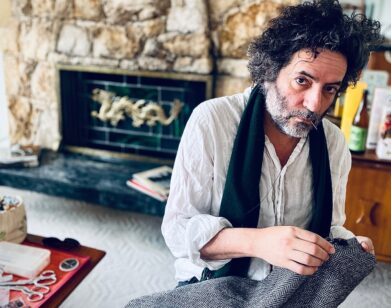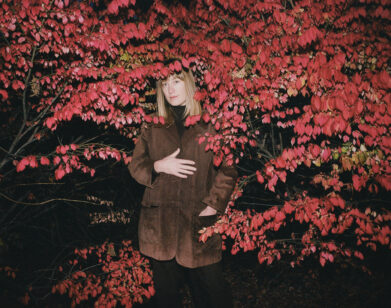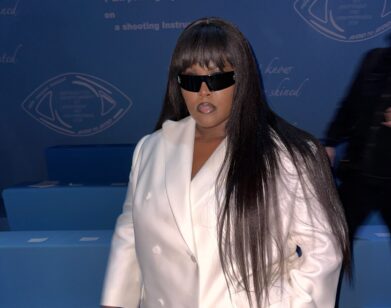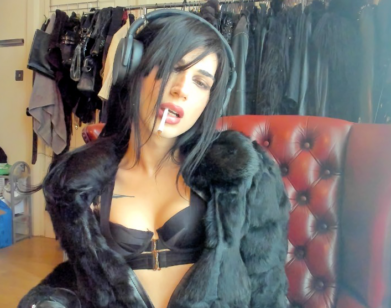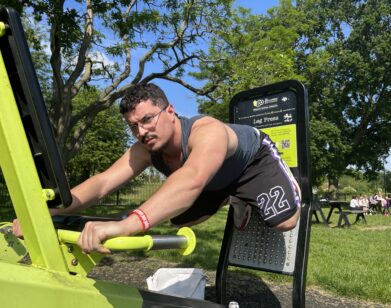q&a
Coming Home to Juan Wauters
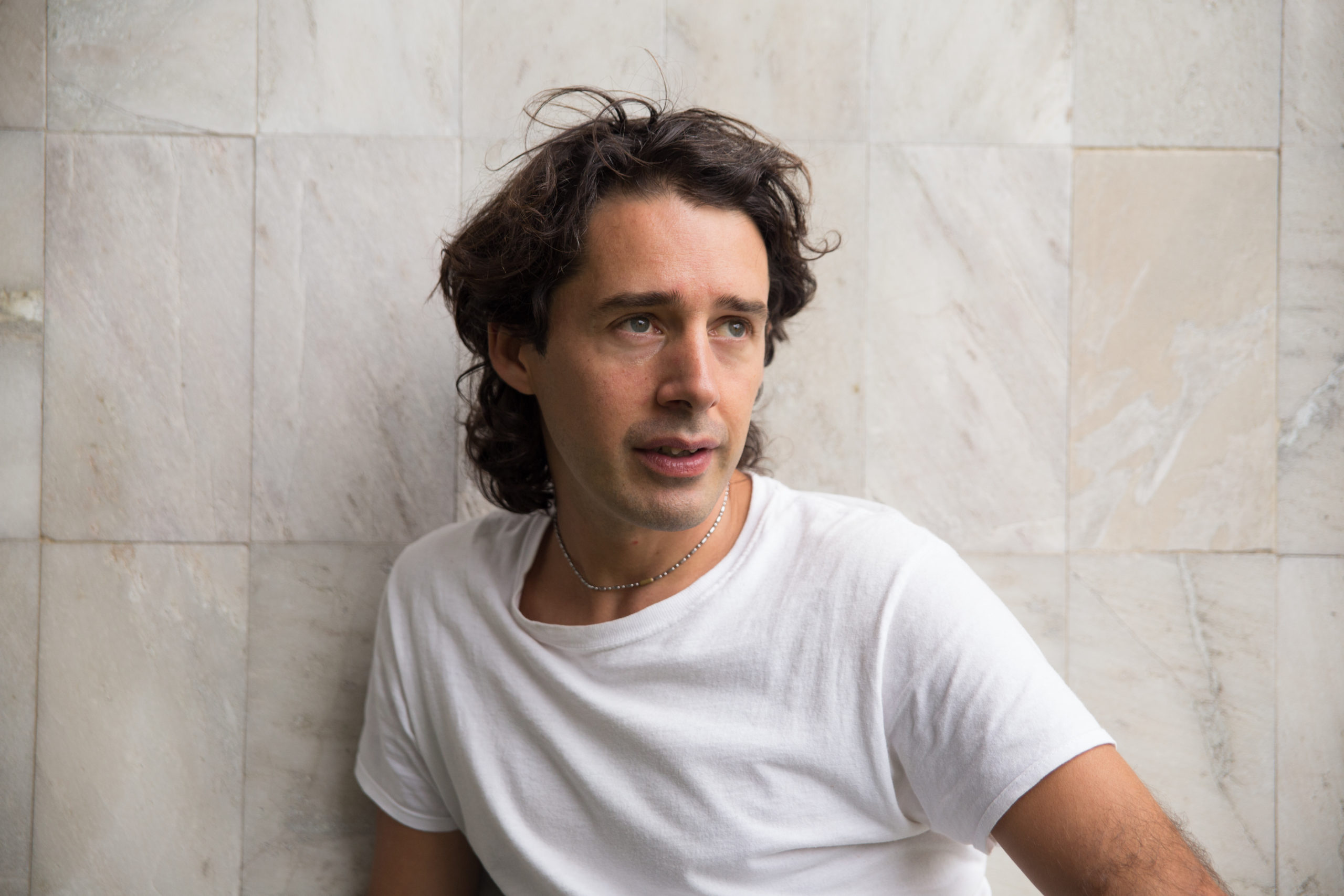
Juan Wauters. Photos by Lucia Garibaldi.
I’ve missed Juan Wauters, and I think he missed us too.
It’s been a few years since Wauters, the Uruguayan singer-songwriter signed to the New York indie label Captured Tracks, released his last album Introducing Juan Pablo, and I wondered when the world would be ready for what his music elicits. He reminds me of summer days in high school when my friends and I would break into construction sites to do graffiti and give pretty girls flowers and play songs in the streets for money so that we could buy a slice of pizza—days when I used to listen to a lot of Wauters. It’s ice cream after skateboarding in the heat all day. It’s playing footsie with your first love after a long day apart. It’s sitting on a park bench in the middle of your city with no sense of time apart from the colors the sun makes on the faces of your neighbors, who you can’t help but smile at.
I’ve always rooted for him because he’s not like the other burnout indie musicians my friends and I listened to. He made me feel special because he was special in ways I was special, and he was proud of it. He’s goofy, he gives himself to his music and his persona, but he differs from the rest for the attention and love he dedicates to Uruguay and Latin America. Through his high-pitched yet endearing vocal patterns that invite us to unwind, he explores themes of loneliness, confusion, and compassion. His music feels not for himself but for his listener; his music explores the joys of togetherness that make a place become home, a sort of joy that have become increasingly rare this past year.
But his latest album, Real Life Situations, is something of a departure. The album sounds like you’re flipping through radio stations throughout the year of 2020, sampling contemporary snippets from interviews, speeches, and talk shows. With collaborations with Mac DeMarco and Nick Hakim, the production is amplified by bright instruments and beats that feel as if they’re calling out to us from somewhere far away, reminding us that Wauters is still out there, loving life in spite of the new challenges we all face. While his music usually explores his relationship with people in his life, this time arounzd the album feels like it’s addressed to everyone in this collective moment of isolation. It’s Juan Wauters as we know him, but a little more distanced, and a little more searching. Normally, Wauters reminds me of summer days with people you love, making noise into the nighttime. On Real Life Situations, he promises us that those days are not too far away.
———
SAAM NIAMI: New York has always felt like a big character in your music. What it is about New York that affects your music as much as it does?
JUAN WUATERS: My family moved us there when I was a teenager, my brothers and me. When you come from another place and you get to New York, pretty quickly I made friends in the neighborhood, in Queens. They never thought twice about accepting me, this guy who came from another country. In New York it’s very normal to have people from other countries. Everyone comes from an immigrant family, in some ways. I became very attached to New York. My friends and I we always say we love New York, the most gorgeous place on earth where you can be yourself and not be judged. Ideas that we made up when we were very naive then, when you grow up you realize all places are cool but New York gives you the incentive to not hide away from where you are. In my music I am able to express myself freely, and in many ways I think it has to do with being from New York for so long.
NIAMI: If you could say goodbye to music forever and invent your own job, what would you do?
WUATERS: I always miss my time as a student, and now that I’m not doing live shows I’m reconnecting with that. I like mathematics. I was studying to teach mathematics to people in high school just because I thought I had really good math teachers in high school and they really opened up my mind to math. I understood what it was about. I wanted to make it my every day living to teach math. I really love math and I thought sharing that to people would be really cool. That’s what I would do.
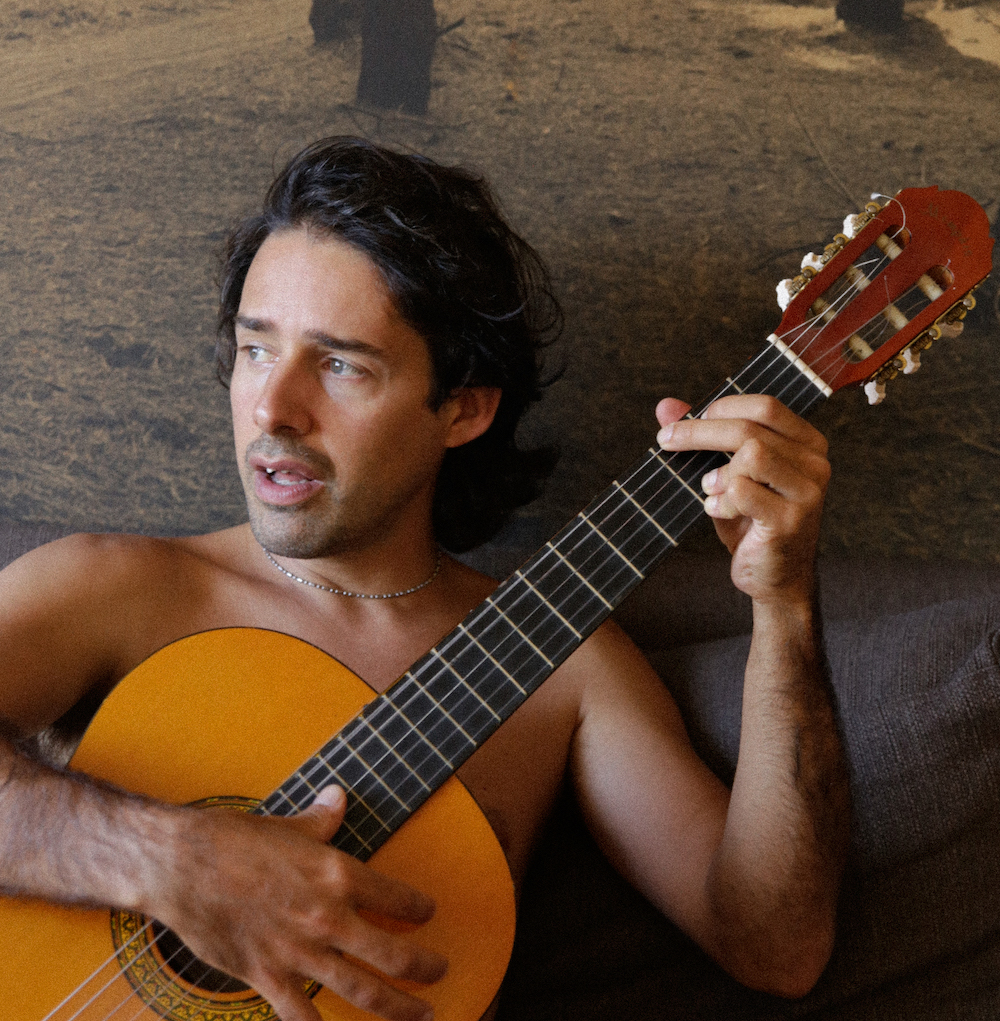
NIAMI: I really loved the project you have on your website, “La Onda de Juan Pablo,” about everywhere you went while you were making that album. After reading through the project, I was curious how movement affects your music-making.
WAUTERS: Thank you for asking that. In some ways it’s the same as what we were just talking about. I really like to listen to radio because it’s what takes me to the place. If I listen to music on my computer, I could take it to China and it would be the same music. But if I turned on the radio in China I don’t know what the fuck they’d be listening to. That’s how I utilize radio these days. I make sure to carry a radio when I move around. I listen to the songs they listen to, wherever I am during my day-to-day. Music is the way I express myself. I have an urgency to write songs about my life. So if I listen to music while I’m traveling, I let it affect me and it will affect the way I write music.
In the particular project you were talking about, I wanted to include musicians from every one of the countries. I wanted the instruments to live among my songwriting. I want them to come into my world and I wanted to be in their world. I don’t want to come into your country and make my music. I’m a foreigner. Nah, that wasn’t the case. I come close to them and we find a middle ground between us. I thought it was a great idea, it was a great fun time to do that. I just would say like, “This is the chord progression, how would you play it?” And I let them play and that’s how it came about. The songwriting is pretty much the same on all my songs but the instrumentation changes. The space affects the music. The people that play are from wherever the song was recorded.
NIAMI: A huge part of your music derives from location, as we’ve been talking about. I was curious as to how the process of learning about a place and discovering a place affect your lifestyle and your art-making.
WAUTERS: When you go to a new place, everything fascinates you. It’s all brand new. “They eat with their hands here, what the fuck?” “People walk around shirtless here! I can walk around with my shirt off!” “People walk around on their hands, I should do that too.” These aren’t any places in particular, but when I travel I let the place live through me. I try to enjoy the place and make sure that I’m in that place. I listen to local music or the radio and it affects me. As for location, I have the tendency to talk about location and space because as a young person I had a traumatic experience of having been taken away from my hometown by force. My parents had to leave the country and I didn’t want to, but that’s what happened. Location became a big part of my life, understanding where I’m from and where I am. I travel so much to find where I belong.
NIAMI: What was the process like making Real Life Situations?
WAUTERS: When I made my project traveling across Latin America, that was the first time I had let other people into my process of music-making. Prior to that, I would make music alone in a room. I understood then that if you let other people into your music you make it richer. You enrich the music. Then I thought, since I’ve always listened to rap music and reggaeton music in New York, “Okay, let’s do collaborations with friends of mine that are in my music life.” I reached out and wrote music with friends of mine. We made songs together. This album has a lot to do with that—opening up to other people in the songwriting process. I was doing that at the end of 2019 and the beginning of 2020. Then Covid hit so I put everything away and came back to it last summer in June. I assembled it under Covid life, so it definitely has that stamp on it too—the energy of having lived in New York during that time, all throughout 2020. It was heavy.
NIAMI: The album has some political commentary on it that feels in response to the last year of American political upheaval. Where did the intention to comment on American politics derive from?
WAUTERS: Well, the album was compiled during the summer of 2020, and the energy surrounding us at the time was pretty high on intensity. I did not make a point to make political commentary but that was in the air and it definitely made its way onto the album. During that period we were experiencing a lot of frustration and there was news coming at us heavily. I would be watching this while compiling the album. I wanted the album to have a “radio-listening” feeling to it, so a lot of the things I saw and watched at the time were printed on the album. If there is a political message in there it is what I gravitate to and pay attention to, and perhaps therefore it explains my views, but that is for the listener to interpret.
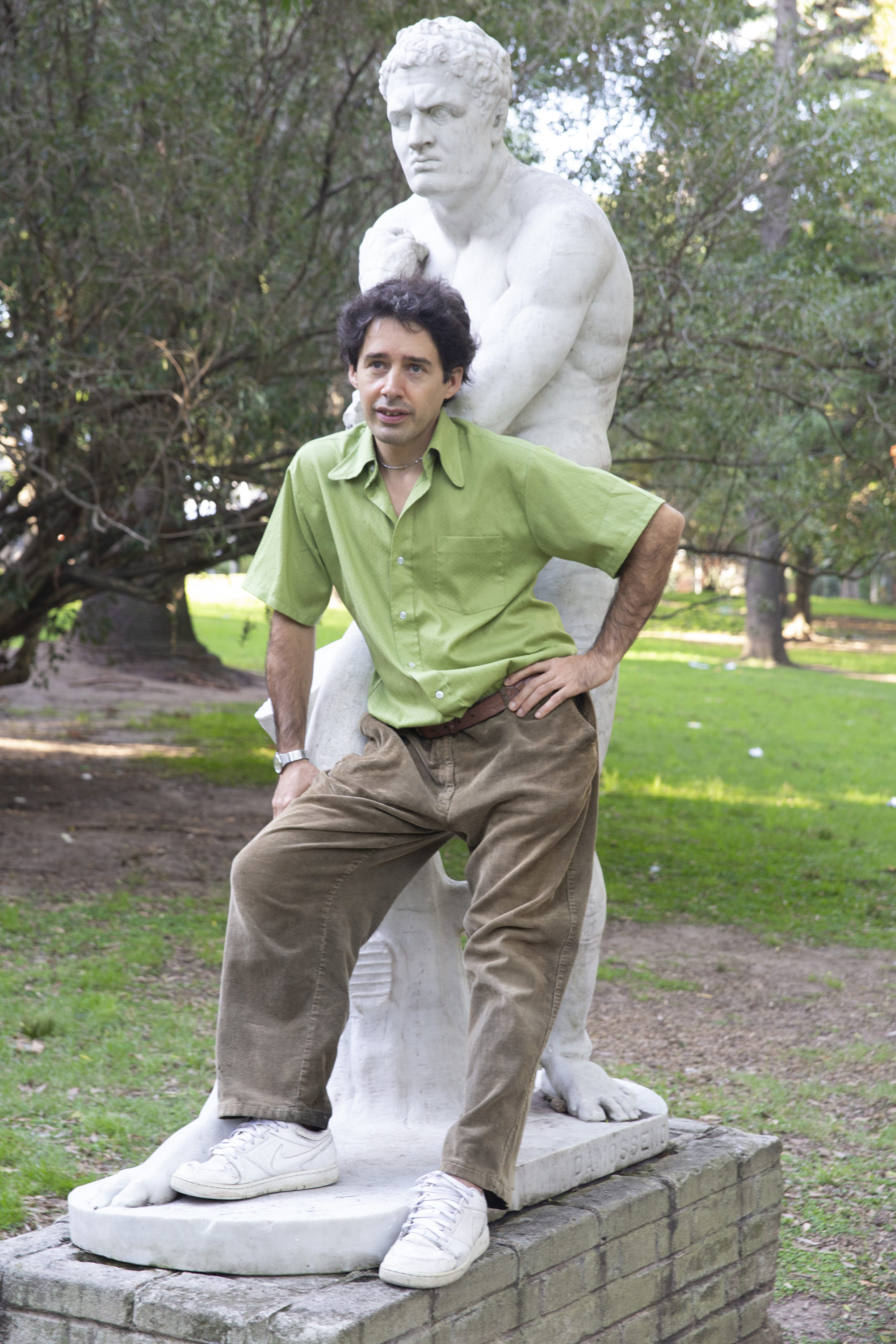
NIAMI: A lot of your music and the themes in your music derive from love. I was curious what it means for you to love. How do you use your music to express love?
WAUTERS: I was brought up to cherish myself and cherish life in the moment. I’m always fascinated about the beauty of life. I’m very conscious of the nasty part of the world as well. I’m very conscious of the negativity. I’m not one of those blind people that are like, “Oh, the world is so beautiful.” But I gravitate toward the energy of love. In some ways, it’s what keeps me alive. It’s what keeps me cozy. It’s what keeps me positive. We don’t really know what love is, we have a word for it—but we don’t know what it is. Love is not a bottle, it’s an idea we have. Among that feeling lives other types of sensitive. Sadness. When you think of something far away and you miss it. In a way, that’s loving, missing someone. When I think about your question, I think it has to do with how I am in life. It has to do with how I see myself. Not that I love myself more than I love others, but I’m very happy to be alive and to have an opportunity to be in the world. Just as much as I love the person within me, I love everything that surrounds me. In some ways, it’s part of my world. Everything I have experienced, my surroundings, my friends, my family, you, even, in this moment we’re sharing. We happen to be a part of an experience that is fading by the minute and in some ways it’s divine. I love the divine. The beauty of the moment.

